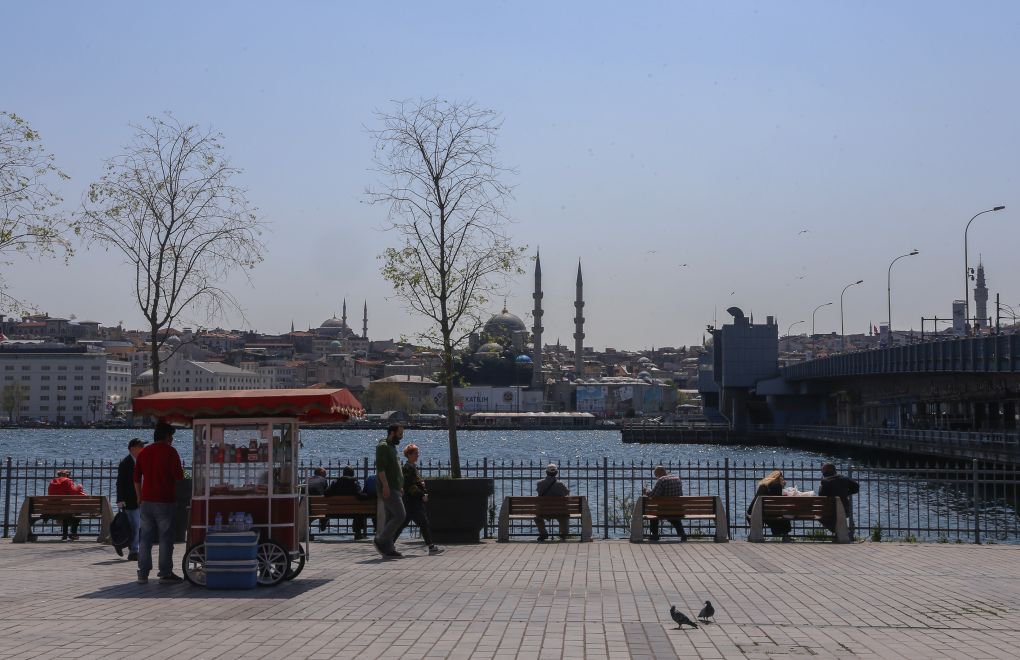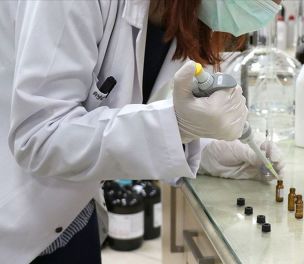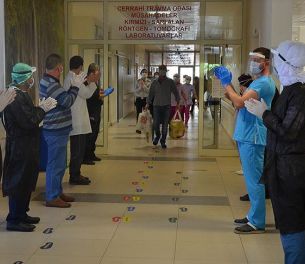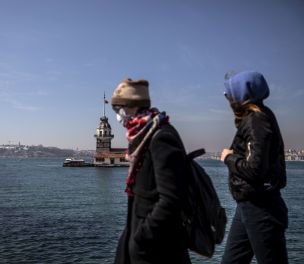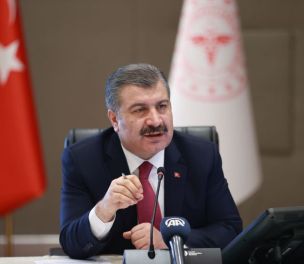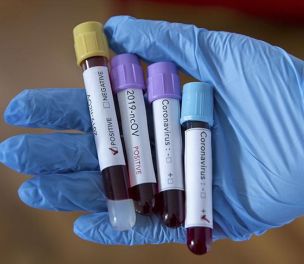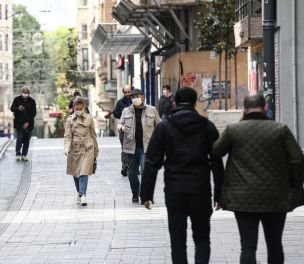Karaköy, İstanbul (Photo: AA)
Click to read the article in Turkish
While the increase rate of Covid-19 cases in Turkey has dropped, the situation is still serious, according to Dr. Osman Öztürk, the secretary-general of the İstanbul Medical Chamber (İTO).
Government officials recently made statements that the country would begin to normalize. President Recep Tayyip Erdoğan said yesterday (April 28) that measures would be gradually lifted according to a schedule. Health Minister Fahrettin Koca is expected to inform the public about the "normalization" today, after a meeting with the ministry's science committee.
Also, İstanbul, the largest and the most affected city of the country from the pandemic, has seen higher crowds on the streets in the last few days.
"The ministry should share all the data"
Öztürk noted that the ministry should share all the data regarding the pandemic in order for a good assessment to be made: "The data is shared in a limited way, the number of hospitalized people is not disclosed, we do not know the regional distribution."
"We need to know the data such as regional distribution, age distribution, and make a projection accordingly. We can only make a cautious assessment without knowing these, considering the possibility of getting it wrong," he added.
According to information they received from hospitals and physicians, the number of new admissions to hospitals has reduced, he said, but added that the epidemic remained serious.
"The situation still does not create the impression that it 'stopped is stopping' and the epidemic remains serious for İstanbul. The risk may be lower for some provinces but the events take place mostly in İstanbul," he said.
İstanbul, a metropolis of 16 million, has nearly 60 percent of the confirmed cases, according to the Health Ministry.
As to the measures taken for 31 cities, which make up 60 percent of the country's population, it doesn't seem that the measures should be loosened, according to Öztürk. "But if the ministry has more detailed information about this, it should share it," he said.
He said people also shouldn't relax: "Politicians' statements lead citizens to relax. For two or three days, İstanbul has almost returned to its old rhythm. Traffic has intensified, contact has increased outside. I find this very dangerous."
The "peak" of the epidemic
"The peak" is a disputable concept, according to Öztürk. "As far as we know from other disease processes, immunity develops when 60 percent of the population is infected, but this happens when [the people] are left on their own. What can happen apart from this depends on the measures taken by the ministry."
"The epidemic hit like a tsunami wave, it is now diminishing. A second wave is talked about but the first wave is not over yet," he said, adding that doctors who make assessments about the peak of the epidemic were very cautious as the situation could change depending on the implementation of measures.
Vice President Fuat Oktay told daily Hürriyet today that both the public and private sector would gradually normalize without stopping the measures altogether.
"We should normalize without losing the gains," he said, adding that, "It's not that we are going back to the normal before the virus. Hygiene, mask and social distance rules will continue."
Prof. Tevfik Özlü, a member of the Health Ministry's science committee, also said that social isolation and hand hygiene must not be abandoned as long as 60 percent of the population becomes immune to the disease. (AS/VK)





